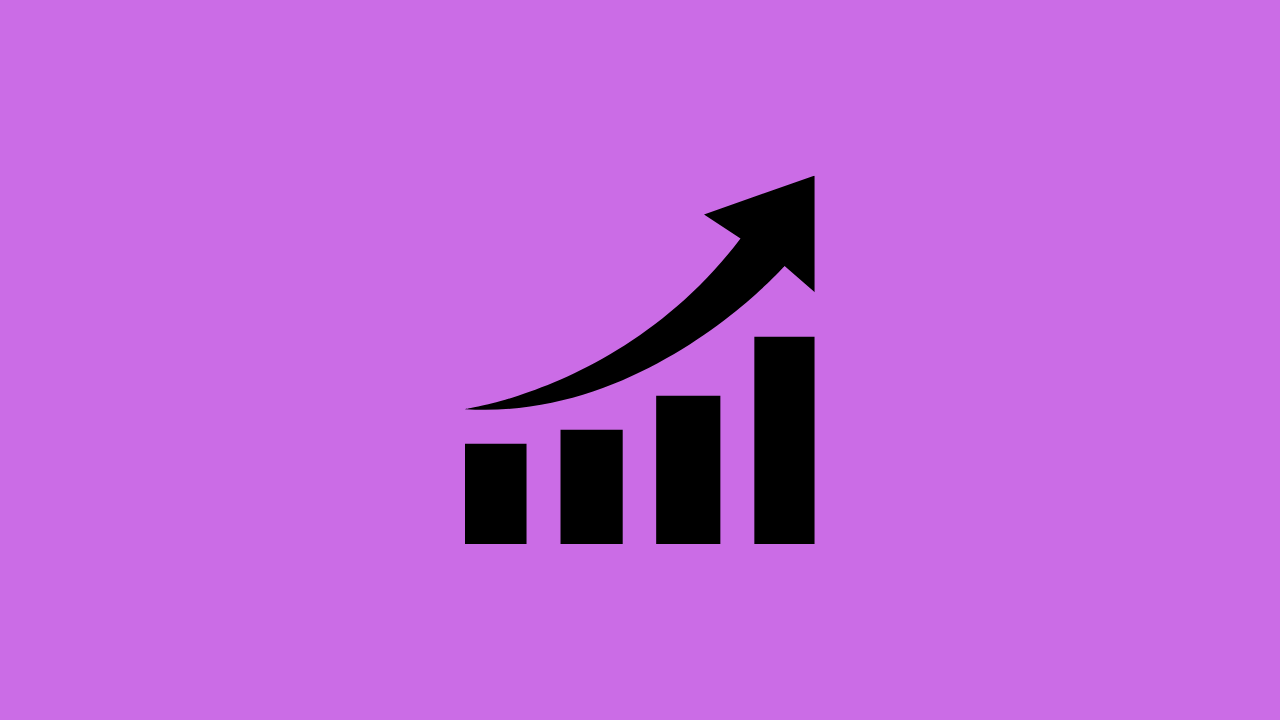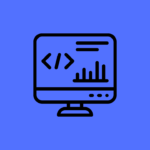In the competitive world of sales, leveraging artificial intelligence (AI) can be a game-changer. AI tools are transforming how businesses approach sales, offering powerful features for lead generation, customer engagement, and sales analytics. In this comprehensive guide, we’ll dive into the top 10 AI tools for sales in 2024, highlighting their key features, benefits, and how they can help you achieve your sales goals.
Introduction to AI in Sales
Artificial intelligence (AI) is revolutionizing the sales landscape by automating processes, providing valuable insights, and enhancing customer interactions. AI tools leverage machine learning algorithms and data analytics to help sales teams improve efficiency, close more deals, and increase revenue. As AI technology continues to evolve, its applications in sales are becoming more sophisticated and impactful, offering a competitive edge to businesses that adopt these tools.
The Importance of AI in Modern Sales
AI tools are critical in modern sales for several reasons. They enable sales teams to:
- Automate Repetitive Tasks: Automate routine tasks such as data entry, scheduling, and follow-ups, freeing up time for more strategic activities.
- Enhance Customer Engagement: Provide personalized and timely interactions with prospects and customers.
- Analyze Sales Data: Generate actionable insights from sales data to inform decision-making and strategy.
- Improve Lead Generation: Identify and prioritize high-quality leads, increasing the chances of conversion.
- Optimize Sales Processes: Streamline workflows and improve overall sales efficiency.
Key Features to Look for in AI Sales Tools
When selecting AI sales tools, consider the following features:
- Lead Scoring and Prioritization: Tools that analyze leads and prioritize them based on their likelihood to convert.
- Sales Forecasting: AI-powered forecasting to predict future sales and inform planning.
- Customer Insights: Detailed insights into customer behavior and preferences.
- Automation: Features that automate repetitive tasks and processes.
- Integration: Compatibility with existing CRM systems and other sales tools.
- User Interface: An intuitive and user-friendly interface that simplifies usage.
- Support and Training: Access to customer support and training resources.
Tool 1: Outreach
Outreach is an AI-powered sales execution platform that helps teams automate outreach, manage pipelines, and forecast revenue with precision. Its “Outreach Kaia” AI assistant provides real-time conversation intelligence during sales calls — surfacing competitor insights, objection responses, and next steps. With predictive deal scoring and guided selling, Outreach boosts rep productivity and close rates.
Best for:
Enterprise and mid-market sales teams looking for AI-assisted engagement and forecasting.
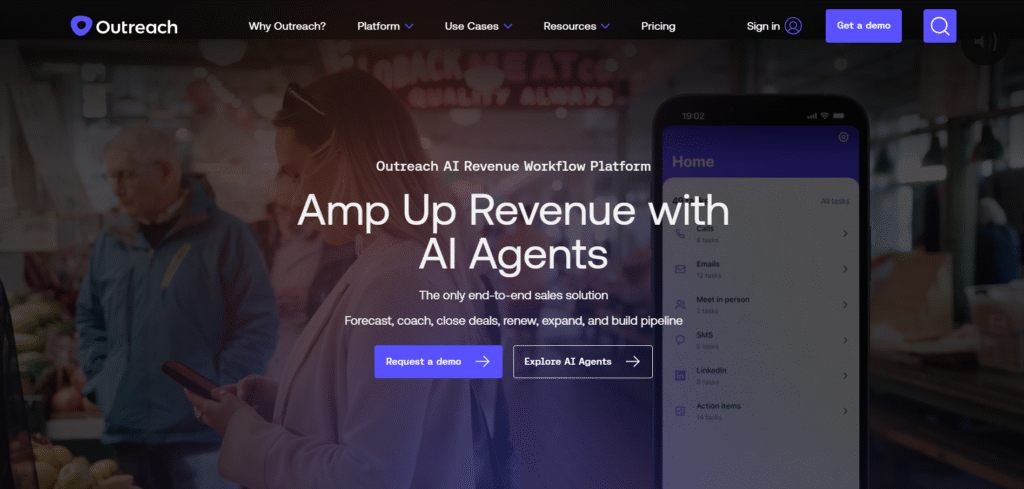
Tool 2: Highspot
Highspot is a sales enablement and content intelligence platform that ensures sales reps always deliver the right content to the right prospect. Its AI engine — Highspot Copilot — recommends the most effective sales materials, messaging, and plays based on deal context and buyer stage. It also provides content performance analytics to help marketing and sales align.
Best for:
Sales and marketing teams seeking AI-driven content recommendations and enablement analytics.
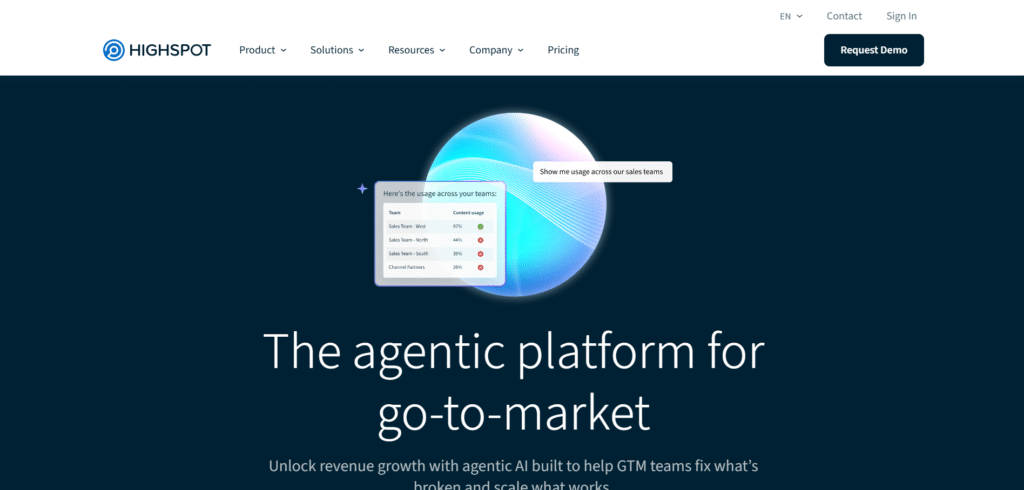
Tool 3: Aircover.ai
Aircover.ai uses real-time generative AI to act as a live “sales coach” during customer calls. It listens to conversations, analyzes context, and instantly provides guidance, data points, or objection handling prompts to reps. This agentic AI ensures reps always have the right response at the right time — improving confidence, accuracy, and conversion rates.
Best for:
Sales teams wanting real-time AI call assistance and objection handling.
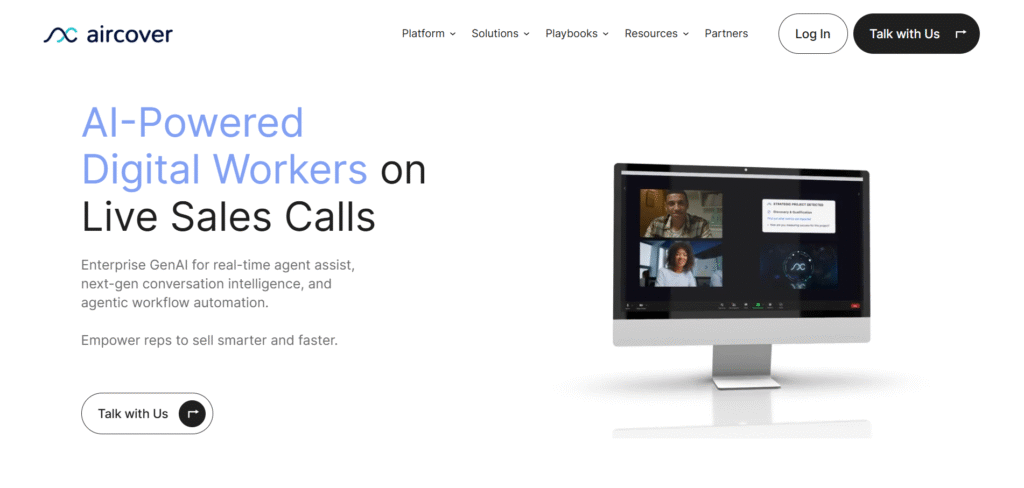
Tool 4: Gong.io
Gong.io is a revenue intelligence platform that uses AI to analyze sales conversations, emails, and meetings to uncover what drives successful deals. It automatically captures every customer interaction and applies natural language processing (NLP) to extract key insights — such as competitor mentions, deal risks, and buying signals. Gong’s dashboards visualize pipeline health and coach sales teams on what top performers do differently.
Best for:
Sales leaders and revenue teams focused on conversation analytics, deal coaching, and data-backed forecasting.
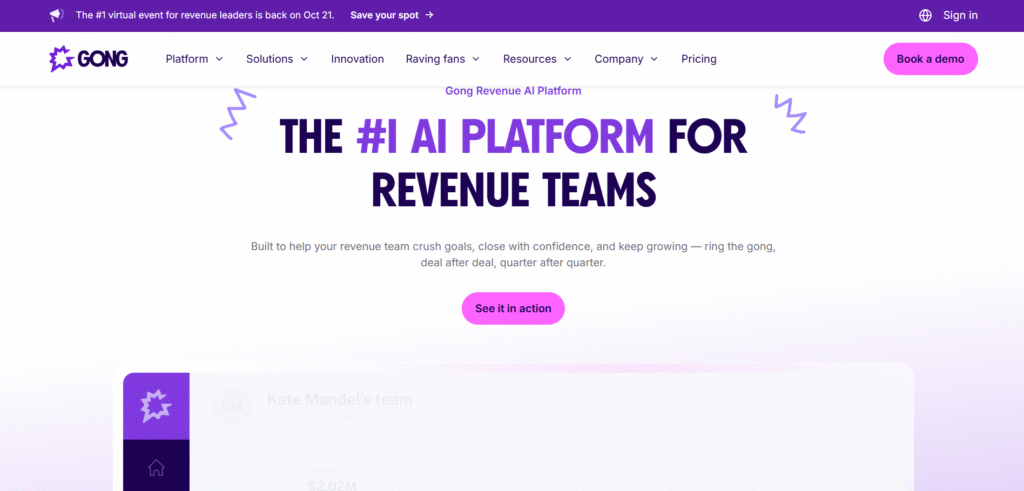
Tool 5: Cognism
Cognism is an AI-driven sales intelligence and prospecting platform that helps teams find, enrich, and contact qualified leads. Its global database offers compliant contact data, intent signals, and advanced segmentation tools. Using AI, Cognism identifies ideal buyer personas and surfaces warm leads most likely to convert — reducing research time and improving outreach accuracy.
Best for:
B2B sales and SDR teams looking for AI-enhanced lead generation and compliance-ready data.
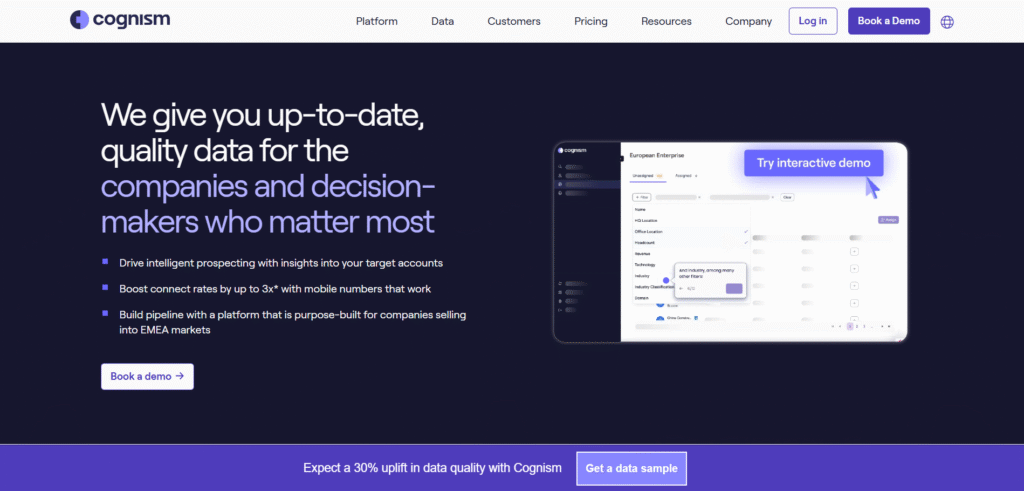
Tool 6: HubSpot Sales Hub
HubSpot’s AI-powered Sales Hub automates follow-ups, predicts deal closures, and helps reps focus on the highest-value opportunities. Its generative AI features (like ChatSpot and HubSpot Content Assistant) simplify email drafting, pipeline updates, and CRM insights. The result: less manual data entry, faster responses, and a smoother sales cycle from lead to close.
Best for:
Growing businesses wanting built-in AI automation within an intuitive CRM.
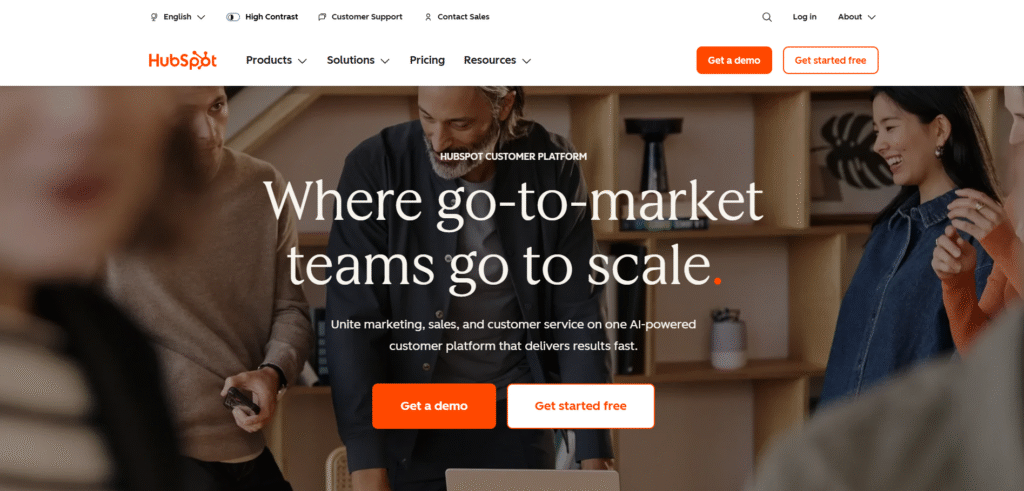
Tool 7:Salesforce Einstein
Salesforce Einstein embeds AI deeply within the Salesforce CRM ecosystem — from lead scoring to predictive forecasting and next-best-action recommendations. The new Einstein Copilot extends these capabilities with generative AI, allowing users to query CRM data conversationally, generate emails, and summarize deals instantly. It’s enterprise-ready and deeply integrated across departments.
Best for:
Enterprises using Salesforce seeking AI-powered CRM intelligence and automation.
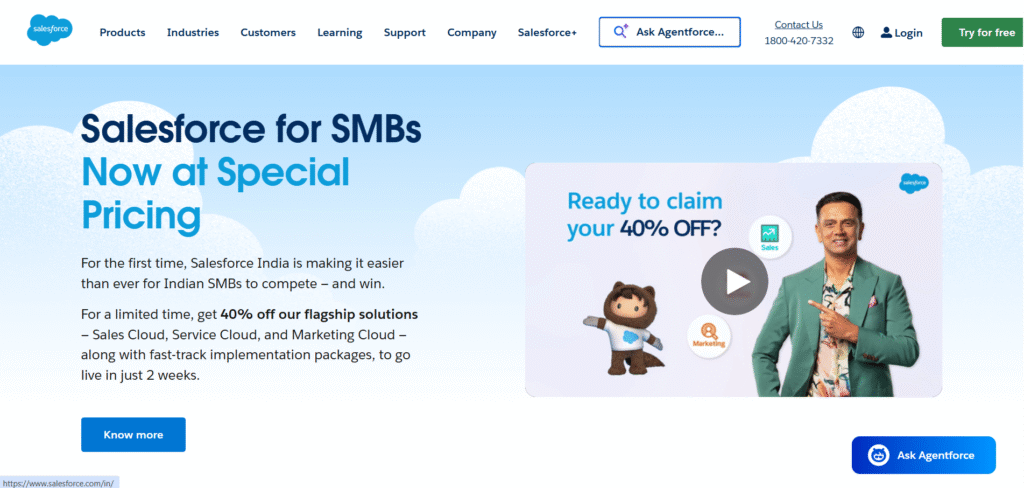
Tool 8: MindTickle
MindTickle is an AI-driven sales readiness and enablement platform that helps teams improve performance through data and behavioral analysis. Its AI models assess rep skills, recommend learning content, and forecast readiness gaps that affect deal outcomes. It also provides coaching insights, enabling managers to build stronger, more consistent sales teams.
Best for:
Large sales teams and enterprises focusing on performance analytics and rep enablement.
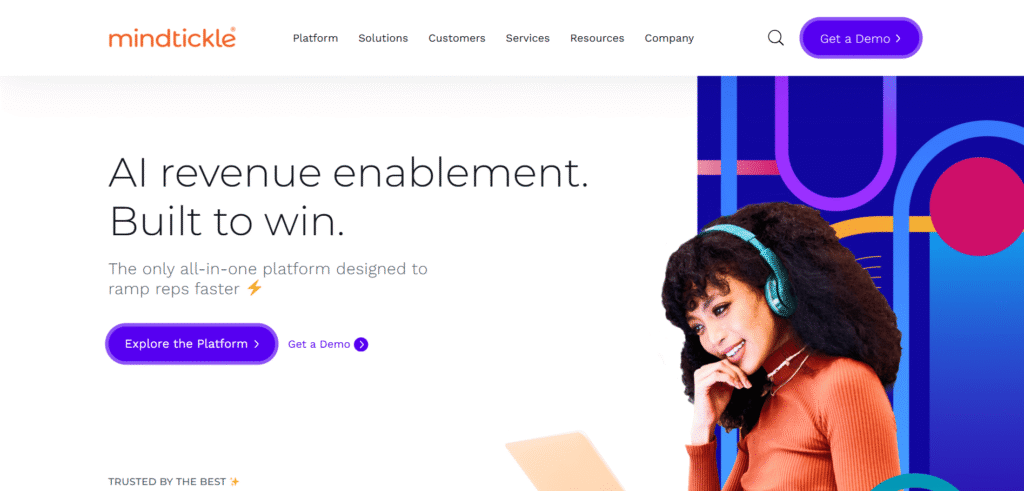
Tool 9: Spekit
Spekit blends AI and microlearning to deliver just-in-time sales enablement. It surfaces relevant playbooks, answers, or snippets inside CRMs like Salesforce or Outreach, reducing ramp time for new reps. Its AI assistant can summarize documentation and suggest the most relevant content based on sales conversations or workflows — perfect for hybrid or remote teams.
Best for:
Sales enablement leaders seeking AI-driven onboarding and real-time learning.
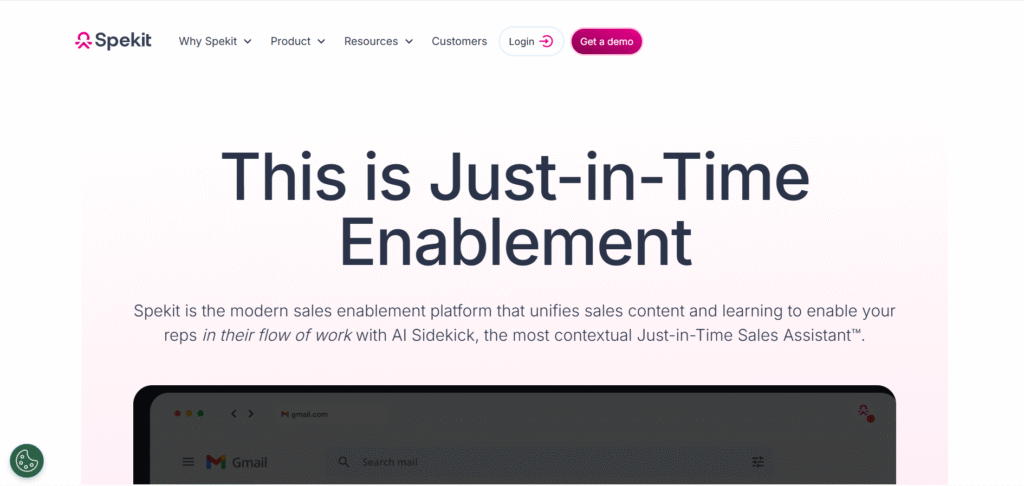
Tool 10: Sharpsell AI
Sharpsell AI is an AI-powered sales enablement and content automation platform designed to help client-facing teams engage smarter. It generates personalized pitches, curates interactive content for presentations, and provides insights on what messaging drives conversions. Especially strong in BFSI and fintech sectors, it enhances storytelling and product pitching with data-backed intelligence.
Best for:
Client-facing sales teams needing AI-led content personalization and presentation tools.
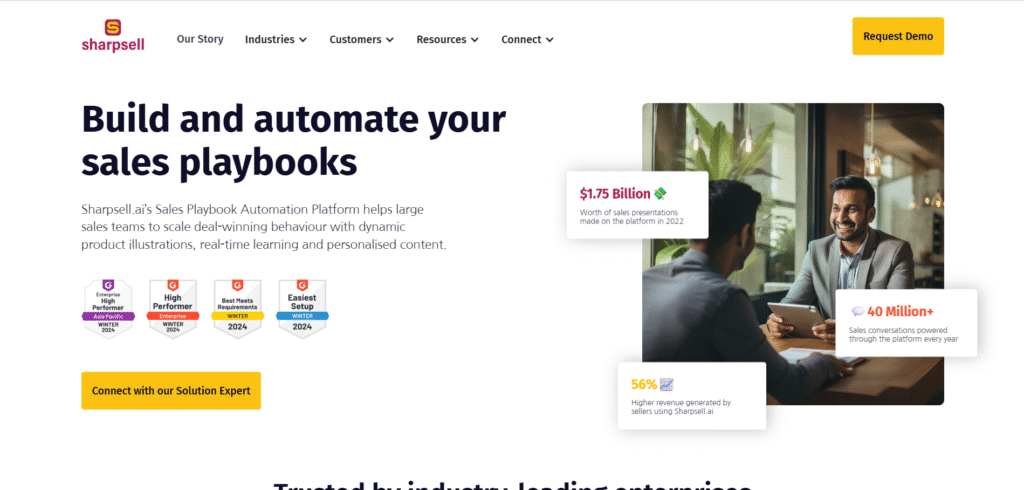
How to Choose the Right AI Sales Tool
Choosing the right AI sales tool depends on your specific needs and goals. Consider the following factors:
- Business Size: Ensure the tool is suitable for the size of your sales team and business.
- Features: Identify the features that are most important for your sales strategy.
- Budget: Consider the cost of the tool and whether it fits within your budget.
- Integration: Check if the tool integrates with your existing CRM and sales tools.
- Ease of Use: Look for a tool with an intuitive interface and good user support.
Future Trends in AI Sales
The future of AI in sales is promising, with several emerging trends:
- Enhanced Personalization: AI will enable more personalized sales interactions based on customer data.
- Real-Time Analytics: AI will provide real-time insights and recommendations during sales conversations.
- Voice and Chatbots: Increased use of AI-driven voice assistants and chatbots for lead engagement and customer support.
- Predictive Sales: AI will become more accurate in predicting sales trends and customer behavior.
- Integration with AR/VR: AI tools will integrate with augmented reality (AR) and virtual reality (VR) to create immersive sales experiences.
Conclusion
AI tools for sales are transforming the way businesses approach sales processes. These tools offer powerful features that enhance efficiency, improve customer engagement, and drive revenue growth. By leveraging AI, sales teams can automate repetitive tasks, gain valuable insights, and focus on closing more deals. As AI technology continues to advance, the possibilities for innovation in sales are limitless, promising a bright future for businesses that embrace these tools.
FAQs
What are AI tools for sales?
AI tools for sales use artificial intelligence to automate tasks, analyze data, and provide insights to improve sales performance and customer engagement.
How do AI tools improve sales performance?
AI tools improve sales performance by automating repetitive tasks, providing personalized customer interactions, analyzing sales data for insights, and enhancing lead generation and qualification.
Are AI sales tools suitable for small businesses?
Yes, many AI sales tools offer scalable solutions and affordable pricing plans, making them suitable for small businesses as well as large enterprises.
What are the costs associated with AI sales tools?
The costs of AI sales tools vary widely, with some offering free versions or trials and others requiring subscriptions or one-time payments for full access to advanced features.
Can AI tools replace human sales representatives?
AI tools can automate many aspects of the sales process, but they are not a replacement for human sales representatives. They are designed to enhance human capabilities and free up time for strategic activities.
Which AI sales tool is the best in 2024?
The best AI sales tool in 2024 depends on your specific needs and preferences. Tools like Salesforce Einstein, HubSpot Sales Hub, and Gong.io are among the top choices, each offering unique features and benefits.
